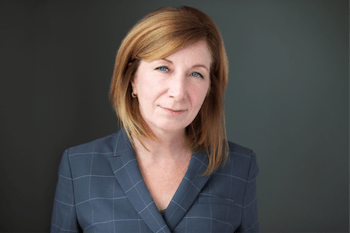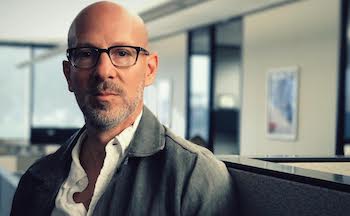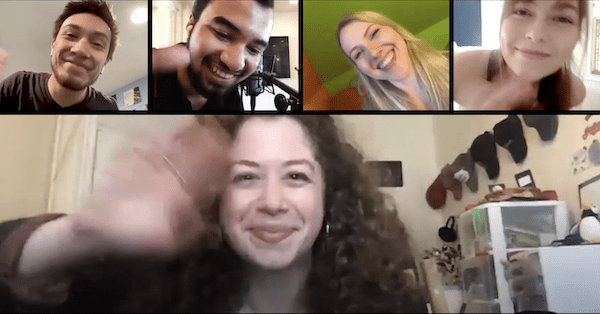Performing Arts Series: Stories of Surviving COVID-19 — New England Conservatory
Editor’s Note:
What lies beyond COVID-19 for the arts community? In a recent e-mail, Boston Baroque wrote that it “understands that collective community experiences in places like concert halls will be forever changed by this pandemic.” I am asking small to medium performing arts organizations to talk about the forms this transformation will take, their plans for survival and the future. Double Edge Theatre has contributed its thoughts, as has the Boston Baroque and the Handel & Haydn Society.
New England Conservatory’s students are scattered across the globe in lockdown. NEC wanted to connect to its pupils through their inspirational love of performance, so the school created the video “Music Prevails.” The idea was to project a sense of togetherness through music. It is also an assertion of the institution’s future — a sign that these difficult days will pass.
Andrea Kalyn, president of New England Conservatory, and Joshua Seftel, founder and director of Smartypants Pictures, a Brooklyn-based film production company, were interested in discussing the process and challenges of making films for arts institutions during the pandemic.
— Bill Marx
Arts Fuse: How is your school trying to connect with students during this unprecedented time in history?
Andrea Kalyn: It’s interesting. You might think of music students spending a lot of time in small rooms, alone, honing their craft. In reality, so much of their work is shared. Music is collaborative. It’s very weird to be running a music school when you can’t hear the school. It’s such a sonic thing, walking across the street and hearing the sounds coming out of the practice rooms or walking down the hall and hearing the sounds of the work going on in the next studio. It makes sense that the current distance is a disruption to that collaborative, emotional part of the school.
AF: What are the biggest challenges of communicating so far during the pandemic?
Joshua Seftel: Well, as filmmakers, we can’t travel or film on location right now (or at least it’s challenging to do so). And that makes our job difficult. So, we’ve had to embrace the technology and use video chat as one of our main mediums now. We’ve chosen to embrace it and to try to find ways to tap into the strength of that form of communication and interview people while they are locked down in their homes.
Kalyn: And one positive is that some people say that they have more confidence during interviews while they’re in their own home. We can show that we’re all in our homes, we’re all going through this. It humanizes things.
Seftel: There’s something intimate about video calls. And we try to tap into the realness of it, the texture, the sound of your finger brushing across the microphone on your computer, the mistakes, the way that the video jumps and skips – it all connects us and grounds us to a real experience.

Andrea Kalyn, president of New England Conservatory. Photo: Smartypants.
AF: Your students are all over the globe right now. What message did you want to communicate with this project?
Kalyn: We needed to engage with the pandemic directly, but in a way that helped our community remember that it’s all temporary. We also talk a lot about “social/cultural relevance” – music is such a humanistic endeavor and so important in the world. And moments of crisis are when we have to step back and say, “Why does what we do matter?”
So, we engage music’s role in our current world, as well as its role in the transition to our future. Our job is always about the future. We teach. We’re educating and training students for the future. It was important for us to remind our community that that mission hasn’t changed, and how that is going to propel us forward.
AF: As a conservatory of music, what role did music need to play in the message?
Kalyn: Performance is about communicating and connecting with people, which is what we’ve all missed in this moment.
Seftel: We wanted to find a way to portray the power of music to connect this community in particular. And so, while we’re all in our own little boxes – literally and figuratively – how can we show a connection?
AF: So given that you couldn’t travel, and that your students are spread all over the globe right now, how did you tackle making the film?
Seftel: We took a piece of music that was written by an NEC graduate, Jay Lifton, and we asked a number of students over Zoom to perform along with that piece. In one day we filmed with someone in Slovenia, Boston, and L.A. The power of now is that using Zoom, we can travel and film all over the world in one day.
Another challenge is recording quality sound. Andrea was kind enough to agree to record the voice-over in her closet, where we knew that the sound quality would be the best it could be.
Kalyn: I’ve shared that cheat with many people now! “Go to your closet to record your video.”
Seftel: I think the key to making this film work is that the sound needs to be good, and the music needs to be great. And luckily, a lot of these music students had their own high quality microphones to record their performance.
The video, believe it or not, is less important. In fact, we actually degraded the quality of the video intentionally to make it look a little muddier, because we felt that that added to the intimacy and authenticity of the experience.
AF: Sometimes having creative constraints can create unexpected opportunities. You had limitations here. How did you make that work to your benefit?

Joshua Seftel Photo: Joshua Seftel, founder and director of Smartypants Pictures. Photo: Smartypants.
Seftel: We shot two kinds of footage: Zoom interviews and much higher quality footage from before the pandemic. When we combined these two styles, we wanted to create a feeling of quiet strength and hopefulness.
I almost feel like it’s in black-and-white in color. We see this rich, beautiful footage of the students on campus and onstage, which was filmed in the past, but feels like the future. We will be together in person. We will be on stage. We will be connecting with people again in the way that we used to.
The student voices in the film were not part of the plan. As we were filming the students on Zoom, I just saw them in their homes, and I felt this hopefulness and this strength. I would just chat with them and say, “How are you doing? And how are you getting by? What does music mean to you right now?”
And their answers were so beautiful that we said, “We should use that.” I always try to keep an open mind when we’re making something and say, “Well, what if?” So, this was one of those cases where I feel like that addition created something special.
Kalyn: That aspect really made it for me. It almost is like part of the soundtrack. Woven with the music composed for this moment, it was really powerful. There is hope and meaning in what these students do.
AF: How was the finished project received?
Kalyn: Oh, I think people loved it. The most telling sign that it moved people was the number of those who wrote to say that they started to cry – this came from people I would never have expected to say that. It was moving for folks. People have said that it gave them hope, it inspired them, and that it connected us to students we haven’t seen in a while. Overall, it was very, very powerful and wonderfully rewarding for everyone involved.

A scene from NEC’s “Music Prevails.”
AF: What did you learn about making films during the pandemic?
Kalyn: This project underscored the power of storytelling, as well as the power of authenticity. All of the limitations of this moment led to a video that may not have been so moving if we had all the trappings of just last year.
Seftel: Our job is easier when there’s a powerful story to tell. And right now in this moment, the message that NEC wanted to communicate – that music prevails – is so meaningful. That’s the key, more than anything: there was a beautiful story at the heart of what NEC is doing.
Joshua Seftel is best known for directing the original Emmy-winning show Queer Eye for the Straight Guy and the political satire War, Inc. starring John Cusack, Marisa Tomei, and Ben Kingsley. He is a contributor/commentator to “CBS Sunday Morning,” “This American Life,” and the New York Times. Smartypants Pictures, his Brooklyn-based production company, specializes in creating intelligent content, from commercials to movies to documentaries. Learn more here.
Andrea Kalyn is president of New England Conservatory. Prior, Andrea was the dean of Oberlin College Conservatory of Music from 2014 to 2018, and before that served for nine years as the conservatory’s associate dean for academic affairs. Andrea received her PhD from the Eastman School of Music and wrote a dissertation on American music of the 20th century.
Tagged: Andrea Kalyn, Joshua Seftel, New England Conservatory
